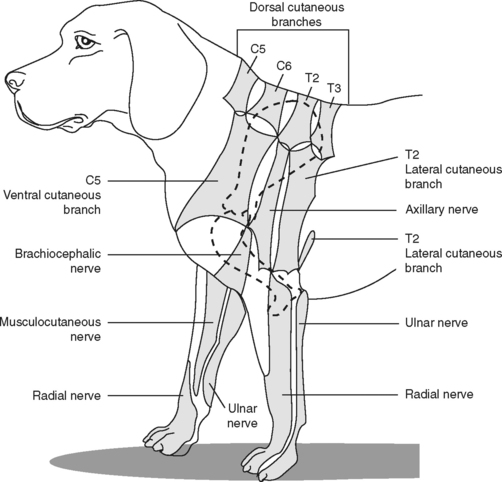N
Nasal Discharge and Sneezing
Causes of Concurrent Nasal Discharge and Sneezing
From Willard M, Tvedten H: Small animal clinical diagnosis by laboratory methods, ed 4, St Louis, 2004, Saunders.
Infections
Fungal: Aspergillus spp., Penicillium spp., Cryptococcus neoformans, Rhinosporidium seeberi; other opportunistic fungi are rare (e.g., Trichosporon)
Parasitic (Pneumonyssoides caninum, Linguatula serrata, Capil-laria aerophila, Syngamus ierei, Cuterebra spp.)
Nasal Neoplasia
Nasal Obstruction/Discharge in Cats, Chronic
Nephrotoxic Agents in Dogs and Cats
| Agent | Comments/Notes |
|---|---|
| Aminoglycoside antibiotics like neomycin, kanamycin, gentamicin, amikacin, and tobramycin | Dogs, cats; not common anymore; mostly seen with parenteral use with repeated dosing, especially if dehydration has not been corrected first |
| Tetracyclines | Dogs; reported with intravenous use; rare |
| Sulfonamides | Crystalluria leading to nephrotoxicity; used less commonly such that toxicity not common anymore |
| NSAIDs such as carprofen, deracoxib, naproxen, ibuprofen, nabumetone, ketoprofen, oxaprozin, etodolac, piroxicam, flurbiprofen, sulindac, diclofenac, meloxicam, tepoxalin | Cats generally more sensitive than dogs; renal toxicosis can occur with acute single large overdose or with repeated use; adverse GI effects more common |
| Ethylene glycol (antifreeze) | Cats more sensitive than dogs (require less amount to be toxic), but more cases seen in dogs |
| Melamine and cyanuric acid (contamination) | Cats, dogs; outbreak in United States from contaminated dog and cat food in 2007; crystalluria, azotemia, GI signs |
| Grapes and raisins ingestion | Dogs only; initial GI signs followed by evidence of renal damage/failure, azotemia > 24 hours |
| Plants: Easter lily (Lilium longiflorum), tiger lily (Lilium tigrinum), day lily (Hemerocallis spp.), rubrum or Japanese show lilies (Lilium speciosum) | Cats only; initially vomiting, anorexia, and lethargy followed by evidence of renal damage within 24–72 hours |
| Cholecalciferol and other vitamin D3 analogs such as calcipotriene and calcitriol | Dogs and cats; mostly reported in dogs; initial GI signs followed by hyperphosphatemia, hypercalcemia, azotemia, CV and CNS effects |
| Zinc (pennies, zinc-plated nuts, wires) | Dogs; affects multiple organs; hemoglobinuria, anemia, azotemia, increased liver enzymes, pancreatitis |
| Heavy metals such as lead, mercury, arsenic | These affect multiple organs; GI signs, CNS effects, increased liver enzymes, azotemia; profuse diarrhea and shock from arsenic |
CNS, Central nervous system; CV, cardiovascular; GI, gastrointestinal; NSAIDs, nonsteroidal antiinflammatory drugs.
Adapted from Khan SA: Intoxication versus acute nontoxicologic illness: differentiating the two. In Ettinger SJ, Feldman EC, editors: Textbook of veterinary internal medicine, St Louis, 2010, Saunders, pp 549–554.
Nerves of the Forelimb: Localization of Contributing Spinal Cord Segments
From Evans H, de Lahunta A: Guide to the dissection of the dog, ed 6, St Louis, 2004, Saunders.
| Nerve | Spinal Cord Segments |
|---|---|
| Phrenic | C5, 6, 7 |
| Cranial pectoral | C6, 7, 8 |
| Suprascapular | C6, 7 |
| Subscapular | C6, 7 |
| Musculocutaneous | C6, 7, 8 |
| Axillary | C7, 8 |
| Thoracodorsal | C8 |
| Lateral thoracic | C8, T1 |
| Radial | C7, 8, T1, 2 |
| Median and ulnar | C8, T1, 2 |
| Caudal pectoral | C8, T1, 2 |
| Sympathetics (Horner’s) | T1, 2, 3 |
Only gold members can continue reading. Log In or Register to continue
Stay updated, free articles. Join our Telegram channel

Full access? Get Clinical Tree



